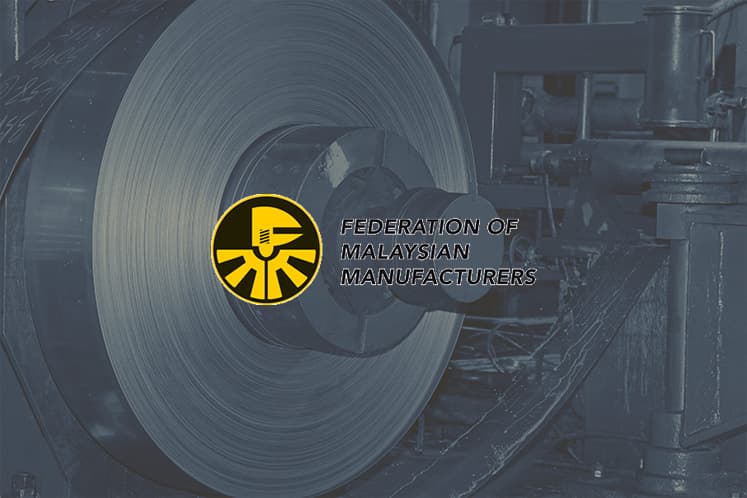
KUALA LUMPUR (March 1): Only selected groups of manufacturers are facing problems of higher cost of doing business, said the Federation of Malaysian Manufacturers (FMM).
FMM’s recent poll revealed that manufacturers surveyed were blaming the implementation of Sales and Services Tax (SST) for higher cost of doing business.
However, FMM clarified in a statement today that the conclusion that SST had caused higher cost of doing business was mainly because the survey conducted was during the period when the implementation of SST lacked clarity.
Furthermore, FMM noted that such a view was from manufacturers who are consuming items that are not eligible for tax exemption or whose tax rate is higher compared with Goods and Services Tax (GST).
The Federation said in a statement today that the survey period was carried out from December 13, 2018 to January 26, 2019, which it said was at the point where the SST was into its third month of implementation and companies would have still been experiencing lack of clarity, understanding of the new regime and uncertainty in the classification and treatment of taxable items.
“Based on the survey findings, most of the cost factors impacting members are those relating to items where tax rates under the SST are higher compared to the GST regime or are not eligible for exemptions.
“FMM has agreed with the Customs Department to investigate fully into the concerns highlighted by our members to address critical areas and where possible to take action to relieve or lessen cost impacts and implementation challenges,” it said in its statement released this evening.
FMM welcomes the new Government’s move to speed up the refund of RM19.4 billion GST to 121,000 companies.
And the FMM acknowledges that the SST has addressed some of the financial and administrative burdens for manufacturers previously associated with GST implementation.
“With SST, cash flow will improve as businesses do not need to pay input tax upfront but instead can apply for sales tax exemption on their raw materials, components and packaging.
“The SST regime has a lower compliance and administrative burden thus reducing cost. In addition, fewer companies come under the coverage of the SST i.e. 80,000 compared with 470,000 under the GST regime,” it said.
The FMM’s statement today was in response to media reports and comments published regarding findings of a business condition survey carried out jointly with the Malaysian Institute of Economic Research (MIER).
Reports cited the survey as saying that the cost of doing business among Malaysian manufacturers had gone up by up to 10%, as a result of the SST, which was reinstated in September 2018, replacing the GST.
FMM noted that in its discussions with the Government, it has been informed of the Government’s commitment in taking action to address technical implementation issues, and to reduce costs.
These include the introduction of the tax deduction facility, previously known as the credit system in January 2019, as well as further expansion of the exemption list to include raw materials and components used in manufacturing non-taxable goods, to avoid increases in cost of doing business and to ensure a level playing field between local manufacturers and traders, it added.